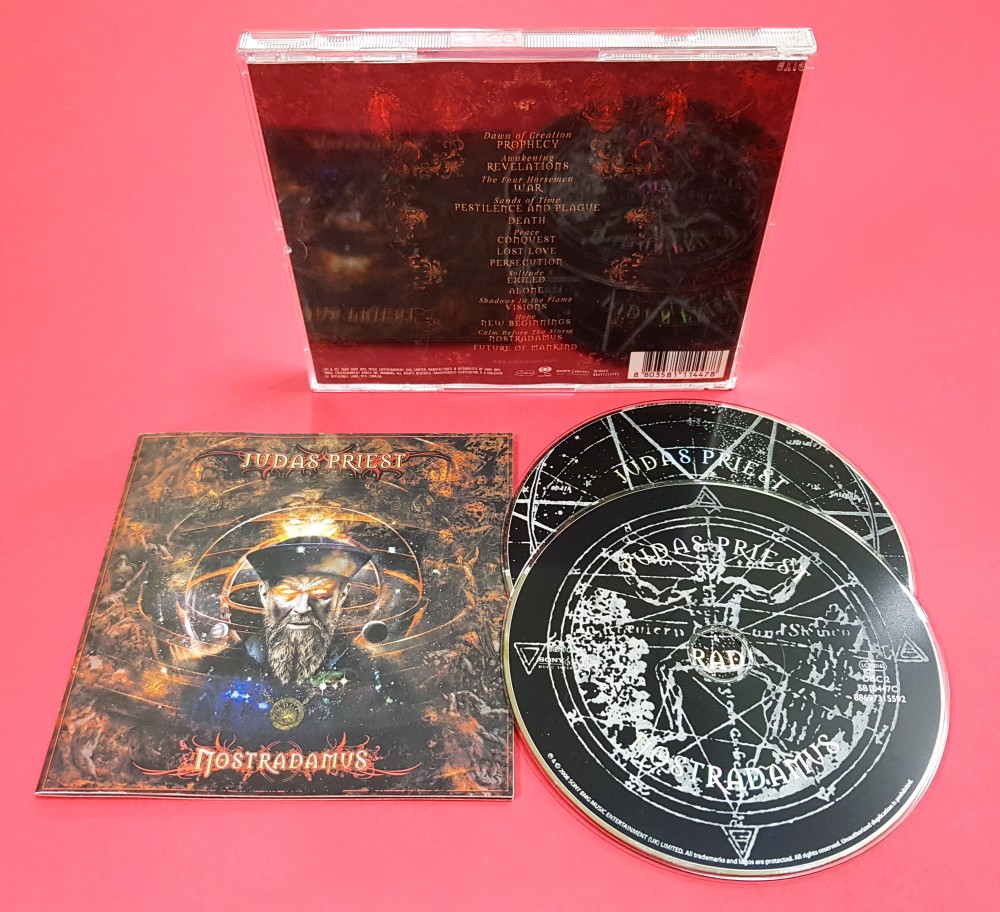

Taking the prophecies and biography of Nostradamus as a starting point and then not allowing anything silly like restraint or the facts get in the way, the actual concept is nonsense, but that's concept albums for you: largely, the album seems to be an exercise in Priest taking a somewhat more progressive and symphonic approach to their music, complete with Don Airey guesting on keyboards (and making his presence extensively felt). Yes, it's that most Spinal Tap of prospects, the double concept album. This time around, though, they seem to have felt an urge to branch out into a new sound yet again - but rather than chasing trends or meandering about in an unfocused manner, as you could accuse them of doing on Jugulator or Demolition, Nostradamus finds them chasing a distinctive musical vision which proves that merely taking the commercially easy way out was not their concern at this point in time. Its predecessor, Angel of Retribution, was largely an exercise in persuading the faithful that Priest were back to business as usual, after the sonic experiments of the Ripper Owens years had met a mixed reaction. Downing, Nostradamus was also the second album after the return of Rob Halford to the band. Certainly, I'm sure you could slip some of these songs into the middle of a set from the British Steel to Defenders of the Faith era and they wouldn't sound incongruous at all.Īs well as being the final Judas Priest album to feature K.K. It does, however, manage to achieve the goal of avoiding the album becoming overly-polished, and makes it sound like a lost set of tapes from their heyday, which perhaps means it's working exactly as intended. Still, this does mean the sound of the album takes some getting used to and can sound flat at points, and I wouldn't be totally shocked if they did another mix of it later on. Turbo is a good example of what I'm talking about that album's not rated that highly by many fans, but everyone loves singing along to Turbo Lover when Priest whip it out live, and that's all down to the live difference. I can see the logic behind doing this: sometimes Priest's studio recordings have ended up failing to carry the power they can convey live with the exact same songs, and that's usually been because studio polish obscured some of the rougher edges of the work in question. There's a somewhat lo-fi production approach here - we're not talking full-blown kvlt black metal recorded on a dictaphone in the middle of the woods nonsense here, but there's a sort of garage-ish quality to proceedings. No big overarching concept here - just Judas Priest metal the way they usually do it. Downing era finds Richie Faulkner settling in as new guitarist and the band taking a bit of a back-to-basics approach, following the not-quite-prog-metal excess of Nostradamus. Judas Priest's first album of the post-K.K.


 0 kommentar(er)
0 kommentar(er)
